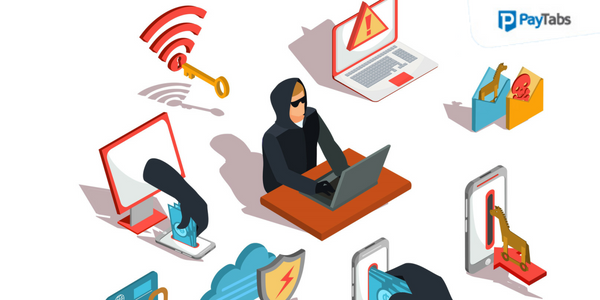Worried About Cyber Security?

A small business owner comes to his office at 9 o’clock as usual and starts his day by checking his emails. He also checks his bank account online in order to upload the payroll sheet and release the salary of his employees, but he is shocked to see that there is no money in his account. Worried, he calls up his bank and enquires about his account status.
The bank customer service tells him that the previous day, there was a transaction made from an unknown location and the funds have already been diverted to another account. In 2012 alone, some 6.5 million LinkedIn accounts and 1.5 million eHarmony accounts had been hacked.
It is not uncommon, so even if you own a small business, you are not immune to these predators and hackers. There are many inexpensive software programs that can be used to hack your account or website. All you need to do to crack a password is to buy a $300 graphic card and you will be able to run 420 billion simple lowercase password combinations every minute.
The big companies have the budget and resources to protect themselves from cyber attacks. According to the National Cyber Security Alliance (NCSA) more than 50% of small business owners complained that they were subjected to a cyber attack in 2013 in the US.
In this article, we will suggest some of the most trusted methods to prevent cyber attacks.
- Stay alert
The first measure you can take against cyber criminals is to stay alert, because they know that the small businesses are vulnerable in terms of security. You can be a soft target because these criminals know that if you have regular cash flow, then you are also likely to have money available in your account.
- Use messaging apps with encrypted data transfer feature
Messaging apps are quite common and people randomly download it from Google Play and some other resources and start interacting with their colleagues and friends.
People also send files and other important data through these apps. In order to minimize the probability of data leaks, use secure messaging apps only.
- Be smart with your passwords
Many people do not change their passwords because of laziness and convenience, but it can be disastrous. From your email account to software and bank account, you should choose hack proof passwords and change them frequently. It is found that more than 55% people keep the same password for all their logins, which makes the task of a hacker much easier.
- Don’t use vulnerable software programs and browsers
It is important to know that old versions of software and browsers can be vulnerable to security threats as many software programs and browsers automatically save your passwords. If somebody is able to hack into your browser or software, they may also get access to your passwords. So, use the latest versions of browsers and software programs.
- General precautions
General precautions include using your own devices and computers, installing reputed antivirus software, and not sharing your passwords even with your employees unless it is inevitable and warranted by the circumstances. Change your passwords as soon as the employee who had access to your passwords leaves your organization.
- Enable 2-step authentication for all your accounts
A two-step authentication involves the login confirmation through a One Time Password to be sent to your mobile device. Prominent email service providers such as Gmail and Yahoo and banks use two-step verification.
- Secure your connected devices on Wi-Fi
If your mobile phone or tablet is connected to your company network, use pin code protection. Don’t use free Wi-Fi available at public places. You can rather use your own virtual private network and your own Wi-Fi hotspot.
- Make cyber security a habit
There is no written code of conduct or set of rules related to cyber security. You should make it a habit to implement cyber security at every level. Do not click links you do not trust, especially those that are sent by unknown senders both on social media and email. Do not use an infected USB drive.
- Use multi layer security if you are using Cloud
Using Cloud is a convenient and easy option for data storage for many companies and that’s the reason they use it to dump all their data.
However, that’s not a good practice from security point of view. Data should be segregated according to sensitivity and criticality. Multi layer security and permissions should be implemented preventing unauthorized people to access your important data.
Final thoughts
In the end, security is not just about preventing someone from unauthorized access; it is also about convenience and confidence to do things that you need to do to keep you in business.

